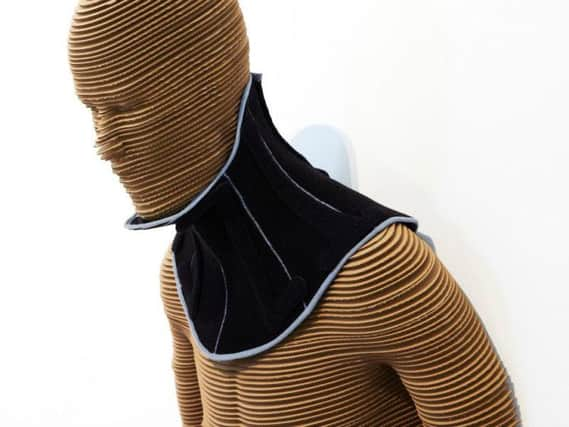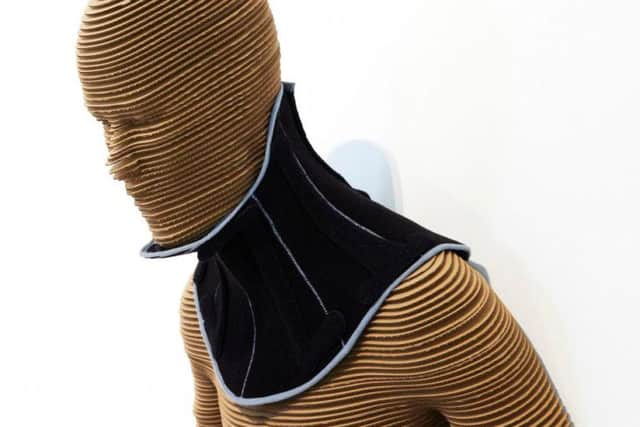Sheffield MND patients inspire 'revolutionary' collar that will reach patients around the world


The Head Up collar is the first of its kind designed with and for patients and uses material designed initially for NASA to line space suits.It was brought about during a five-year project by the University of Sheffield, Sheffield Hallam University and the NIHR Devices for Dignity (D4D) MedTech Co-operative, which is hosted by Sheffield Teaching Hospitals.Unlike those currently available, the collar offers personalised support to the collection of small muscles in the neck which are particularly vulnerable to the wasting effects of the debilitating disease.Following a successful trial at 10 sites around the UK and Ireland, it is now being made available around the world, with 25 NHS Trusts already using the product with suitable patients.MND is a debilitating condition that destroys the cells that control movement, leaving sufferers unable to move, walk, talk and eventually breathe. A frequent problem caused by MND is the loss of strength in the neck, causing patients heads to droop to the side or the front. Until now, many head supports available to MND patients resemble the restrictive braces used after a trauma – such as a car crash, which restrict movement, or soft collars which offer little support and tend to make patients feel hot and sweaty.MND patients experiencing problems with the existing collars approached clinicians and researchers from the University of Sheffield and Sheffield Teaching Hospitals Foundation Trust who, with the help of designers from Sheffield Hallam University, have invented the collar.Lead clinician Chris McDermott, Professor of Translational Neurology at the University of Sheffield and Consultant Neurologist at Sheffield Teaching Hospitals, said: “The Head Up collar was very much designed by patients for patients. We listened to what matters to them and what will have the greatest impact on their quality of life.
"The special collaboration of leading clinicians, researchers, designers, manufacturers and the patients themselves have been working tirelessly for the past five-years to bring the idea to life.”
Advertisement
Hide AdAdvertisement
Hide AdProfessor McDermott, who is also the Deputy Director of the NIHR Sheffield Biomedical Research Centre - the UK’s only Biomedical Research Centre dedicated to Neurology - added: “The concept itself seems extremely simple and we couldn’t believe something like this hadn’t been developed and patented before.


“We are hoping the collar will continue to evolve and be improved as further advances are made, however the feedback we have already received from patients is extremely promising and it is wonderful to hear the impact it is already having on their lives.”
Produced in collaboration with NIHR Devices for Dignity (D4D) and the Motor Neurone Disease Association (MNDA), the Head Up collar has already been trialled by over 100 MND patients – 80 per cent of whom felt the collar helped them and they wanted to carry on using the collar after the trial.